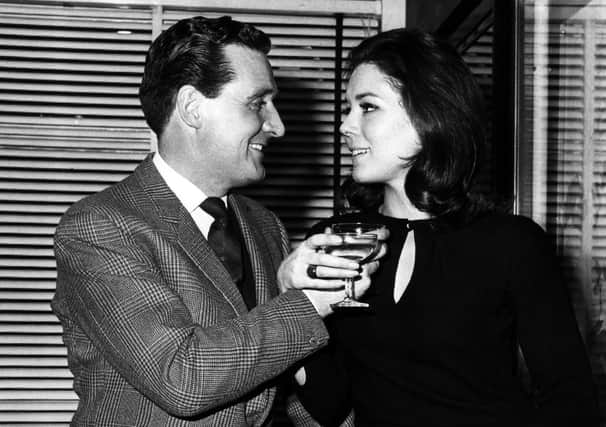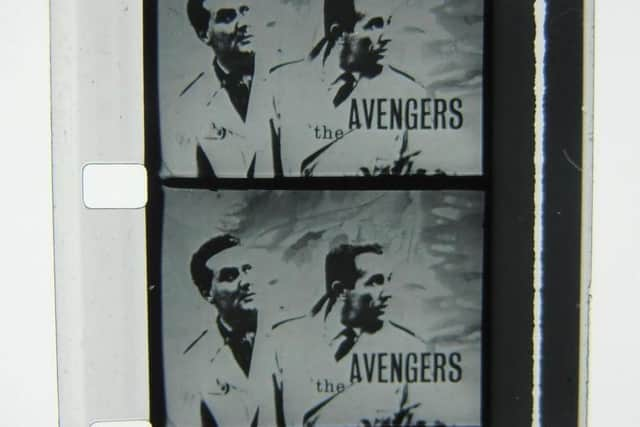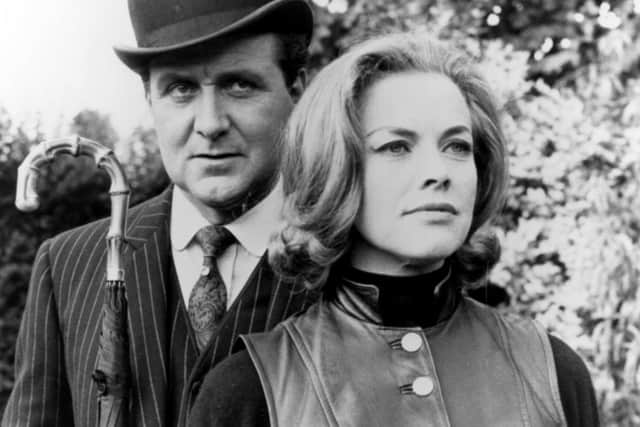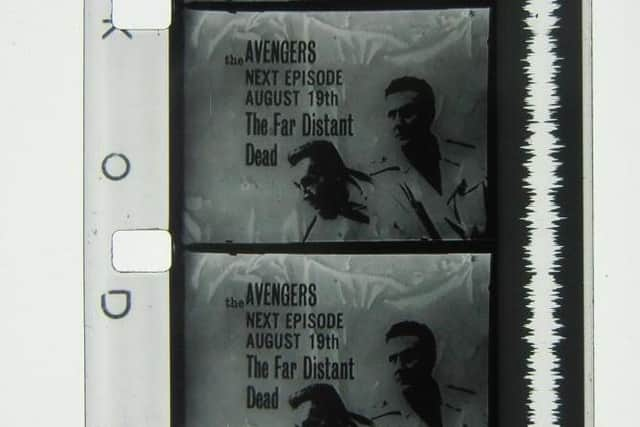60 years on, how The Avengers and Honor Blackman invented girl power


The Avengers was the chic, tongue-in-cheek crime drama whose emancipated and emasculating leather-clad female leads helped drag the genre, screaming and kicking in knee-high boots, into the new decade.
Yet it happened almost by accident. And this evening’s anniversary screening is possible only because of detective work by TV researchers – self-styled Raiders of the Lost Archive – who closed the book on cases that John Steed, Cathy Gale and Emma Peel left unsolved.
Advertisement
Hide AdAdvertisement
Hide AdIt was in January 1961 that an earlier ITV series called Police Surgeon evolved into The Avengers, with Patrick Macnee’s Steed playing second fiddle to Ian Hendry, as Dr David Keel.


The first season ran for 26 weeks, but only three compete episodes survive – and the one to be shown tonight was lost in a cupboard for 20 years. Its plot concerns secret information leaking into Europe from the ghost train at a funfair, but the real-life drama behind its rediscovery is almost as implausible.
“It was bought in an unmarked can by a collector in Kent, and he had no idea what was inside,” said Chris Perry, a TV historian from the archive organisation Kaleidoscope, who rescued it. “He only collected films and he got this by accident. He’d had it for 20 years before anyone knew it still existed.”
The episode, Tunnel of Fear, will be screened with two later instalments and an online question and answer session with surviving crew members.
Advertisement
Hide AdAdvertisement
Hide AdDespite its premise, the studio-bound story is conventional compared with the better-known filmed series of The Avengers.


“It’s as if you’re watching a different series. It’s not weird and wacky, it’s just a fairly routine detective drama,” Mr Perry said.
That changed when Honor Blackman came on board as Mrs Gale. The part was intended for a male actor, and when she was cast at the last minute, she played it without rewrites, throwing herself into as many fight scenes as Macnee and inventing in the process what would later be known as girl power.
“It was ground-breaking in its depiction of strong, independent female characters,” said John Rodden at the distributor Studiocanal, which is behind tonight’s screening on ourscreen.com.
Advertisement
Hide AdAdvertisement
Hide AdMs Blackman was not an automatic choice , recalled Howard Thomas, managing director of ABC TV. For her first series she alternated with actress Julie Stevens as Venus Smith. But Ms Stevens eventually opted for a career on children’s television.


Ms Blackman appeared for two seasons before leaving to co-star in the third James Bond film, Goldfinger. When she was replaced by Diana Rigg, the series moved from the TV studios on to film stages, acquiring its distinctive visual style and a network sale to American TV.
Both Ms Blackman and Dame Diana, a Doncaster-born railway worker’s daughter who was as much at home in the classics as in the leather catsuits she wore in The Avengers, died last year.
The lasting appeal of The Avengers is thanks partly to its revival by Channel 4 in the early 1980s, which opened it up to the video generation, said Chris Perry.
Advertisement
Hide AdAdvertisement
Hide Ad“It’s been shown somewhere in the world every year since,” he said.
While many other shows from the 1960s have been long since wiped, all the Avengers episodes from series two onwards have been recovered and remastered. “I think that with The Avengers the archivists realised that they were dealing with something important,” Mr Perry said.
Support The Yorkshire Post and become a subscriber today. Your subscription will help us to continue to bring quality news to the people of Yorkshire. In return, you’ll see fewer ads on site, get free access to our app and receive exclusive members-only offers. Click here to subscribe.
Comment Guidelines
National World encourages reader discussion on our stories. User feedback, insights and back-and-forth exchanges add a rich layer of context to reporting. Please review our Community Guidelines before commenting.